The Harmony of Health
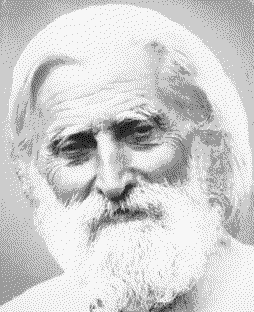
The basic tenets of Integrated Health, and the road to unlocking your Innate Freedom:
“A healthy person is one with mind, heart and will in complete harmony – with light in the mind, an impulse and stimulus in the heart and energy in the will.”
–Peter Konstantinov Deunov (a.k.a. Master Beinsa Douno, Bulgarian Spiritual Master and Founder of a School of Esoteric Christianity, 1864-1944)
“Prophet for Our Times: The Life and Teachings of Peter Deunov” (Peter Duenov)
Even Now, Medicine Remains Both Science and Art
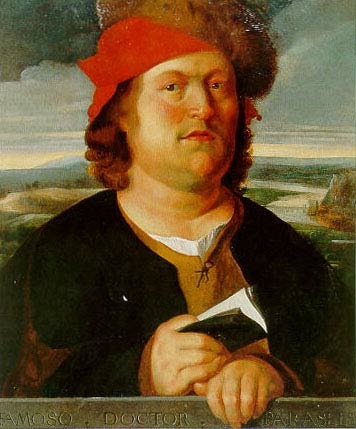
“Medicine is not only a science; it is also an art. It does not consist of compounding pills and plasters; it deals with the very processes of life, which must be understood before they may be guided.”
–Paracelsus (a.k.a. Theophrastus Phillippus Aureolus Bombastus von Hohenheim, Swiss Physician and Alchemist, 1493-1541)
A Cause of Disease
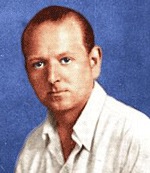
“Disease of the body as we know it, is a result, an end product, a final stage of something much deeper. Disease originates above the physical plane, nearer to the mental. It is entirely the result of a conflict between our spiritual and mortal selves. So long as these two are in harmony, we are in perfect health: but when there is discord there follows what we know as disease.”
–Edward Bach (English Physician and Creator of the Bach Flower Essences, 1886-1936)
Healing Everything
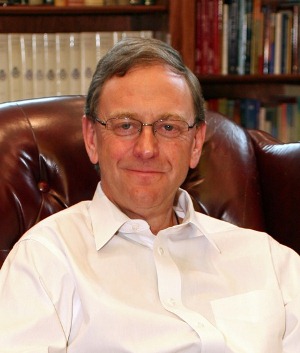
I get a huge number of requests for more information about my philosophy of health and healing; where it came from, and why people believe that my approach is the medicine of the future: hence the amusing title of “The Future Doc.”
My belief in an “integrated” approach to health and healing, that engages the physical, psychological, social, subtle and spiritual aspects of life is not confined to the treatment and personal growth of individuals. It also encompasses ecology, sociology and business practices. In many respects I have followed a similar path to Ken Wilber, but while he has been the theorist par excellence, whose ideas are now being test-driven in a multitude of different applications, I started from personal perception and clinical practice. I talk about some of the origins of my work in Healing, Meaning and Purpose.
It is well-known that I had the privilege of working with the Prince’s Foundation for Integrated Medicine, which is now the Foundation for Integrated Health, and I recently came across this statement by His Royal Highness The Prince of Wales in the magazine Temenos that beautifully summarizes the philosophy that underlies the entire approach.
“As I have grown older I have gradually come to realize that my entire life so far has been motivated by a desire to heal – to heal the dismembered landscape and the poisoned soil; the cruelly shattered townscape, where harmony has been replaced by cacophony; to heal the divisions between intuitive and rational thought, between mind, body and soul, so that the temple of our humanity can once again be lit by a sacred flame; to level the monstrous artificial barrier erected between Tradition and Modernity and, above all, to heal the mortally wounded soul that, alone, can give us warning of the folly of playing God and of believing that knowledge on its own is a substitute for wisdom.”
Most of us realize that the world has become terribly unbalanced, with an extraordinary over-emphasis on the intellect and a tacit assumption that the world is an object to be plundered. In the halls of academia, “heart,” “intuition” and “soul” have often become dirty words, even though it is difficult to see how we can repair our imbalanced world without acknowledging the importance of all of them. This is not to decry the importance of reasoning, but it is an appeal to acknowledge the existence of the soul, to heal our connection with and to listen to her intuitive urgings.
Prince Charles has also said that,
“In medicine, as in architecture, the doctrine of man as a machine has held sway. God was declared dead – I remember it happening. The soul was declared moribund and redundant. Ancient well-tried therapies and diagnostic techniques were simply abandoned and thrown away. The balance of the rational and the intuitive was destroyed.”
I totally agree, and it is this balance that we have to restore.
Our lives depend on it.
Sir Richard Branson’s Integrated Health
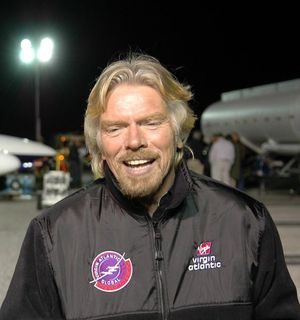
Sir Richard Branson is a hugely popular British entrepreneur and adventurer who has been able to keep the common touch and does not seem to be as ruthless as some other self-made billionaires.
For more than three decades Richard has also shown that he has a remarkably good nose for identifying important and/or lucrative new trends. Like all people, he has made the occasional bad call, but his overall success rate is astonishing.
So I was extremely interested to see that Richard Branson’s Virgin Group has launched a foray into the British National Health Service (NHS) primary healthcare market and they are trying to persuade family doctors to join them in establishing a network of branded clinics.
It is particularly interesting that British government ministers are welcoming Virgin Healthcare’s decision to open the first of six “one-stop-shop” health centers later this year. The plan is to offer services from homeopathy to psychotherapy alongside typical primary care services.
This project has been two years in the planning and the group has just started its first advertising campaign to generate interest among family doctors who could join its health centers.
The business model allows family physicians to retain their existing contracts but Virgin would manage funds the doctors receive for staff costs and rental. Virgin would then offer a range of additional NHS and private services to visiting patients, including dentistry, screening, a pharmacy “and a range of conventional and complementary therapies.”
The British government has identified the importance of providing more and better primary care services and has £250m a year earmarked for the new services and Virgin wants to be a provider.
What is different is that Virgin Healthcare is proposing to work with primary care physicians to help develop more integrated, accessible and personalized services for patients and that they are quite prepared to consider providing less conventional therapies for which there is patient demand and/or empirical evidence.
That last piece – including less orthodox therapies – will inevitably put the cat amongst the pigeons, but Richard Branson and his advisers have correctly identified that there are some good reasons for including some of these therapies, even if the research base is not yet as good as we would like.
Doctors, Integrated Health, Faith and Spirituality

I am often asked if there is any conflict between being a Catholic and a physician teaching holistic health. That always seems to me a slightly odd question: for me they fit together seamlessly.
Some time ago I was asked to see the son of two pastors from an evangelical church. They, their family, and congregation had been praying for him for three years, and they felt guilty about coming to see me. They only came because of the insistence of one of the congregation who had seen an article about my work, and thought that I looked as if I had a nice face. You, gentle reader can be the judge of that.
It was soon clear what was wrong with the son, but the family told me that they did not really believe in medication and felt that their prayers should have been enough.
My response was to ask them if they thought it possible that the Lord had led their parishioner to read the article? Is it not said that, “God works in mysterious ways?” “Is it possible that my team, and the pharmaceutical companies that make the medicines that I am recommending, could all be the answer to your prayers?” I do not know the answer, but they decided that was the case, agreed to the treatment, and the young man was back on track in a few weeks.
It is inevitably controversial whenever I talk about this kind of issue, but I think that it is important.
I would also like to share something that I had not read since I was a teenager. It came along yesterday, seemingly by chance. Except that I don’t really believe in change or coincidence.
“Honor the doctor with the honor that is his due in return for his services; for he too has been created by the Lord.”
“Healing itself comes from the Most High, like a gift from a king.”
“The doctor’s learning keeps his head high, he is regarded with awe by potentates.”
“The Lord has brought medicines into existence from the earth, and the sensible man will not despise them.”
“Did not a piece of wood once sweeten the water, thus giving proof of its virtue?”
“He has also given men learning so that they may glory in his mighty works.”
“He uses them to heal and to relieve pain, the chemist makes up a mixture from them.”
“Thus there is no end to his activities and through him health extends across the world.”
“My son, when you are ill, do not be depressed, but pray to the Lord and he will heal you.”
“Renounce your faults, keep you hands unsoiled ad cleanse your heart from all sin.”
“Offer incense and a memorial of fine flour and make as rich an offering as you can afford.”
“Then let the doctor take over – the Lord created him too – and do not let him leave you for your need him.”
“Sometimes success is in their hands, since they in turn will beseech the Lord to grant them the grace to relieve and to heal, that life may be saved.”
“If a man sins in the eyes of his Maker, may he fall under the care of the doctor.”
The Jerusalem Bible, Ecclesiasticus 38:1-15
National Acupuncture Detoxification Association

I had the pleasure and privilege of being on Scott Cluthe’s show on Lime Radio this evening. It’s on Sirius Satellite Channel 114, and if you are interested in the new holistic worldview that is emerging all over the planet, I highly recommend Scott’s show and, in fact, all the shows that I have heard on Lime. I have also had a link to Lime website for some time now, and it always has a great deal of excellent material.
There were some excellent questions from listeners, and one caused me to do some research. The question was about the National Acupuncture Detoxification Association (NADA). The Association is a nonprofit that conducts training and provides public education about the use of acupuncture as an adjunctive treatment for addictions and mental disorders.
There is a substantial body of research literature on the topic of using acupuncture as part of a package of measures for treating substance abuse, and although it is still considered controversial in some quarters, it is being used in over 1,500 places around the world, and that does not include China and Japan, where I have seen acupuncture used a great deal in addictive disorders.
My own experience has been mixed. I have had little success I treating smoking addiction with acupuncture, though I have many colleagues who say that it is extremely helpful. I have had more success in using thought field therapy and homeopathy for treating smoking addiction, even though there is so far no good research data on the use of either for smoking.
If you are interested in the use of acupuncture as an adjunctive treatment for substance abuse, the NADA website if a good place to start.
Unhealthy America

The Milken Institute has released an impressive study that shows the heavy economic burden chronic disease places on our nation. “An Unhealthy America: The Economic Burden of Chronic Disease” shows the current treatment costs of seven chronic diseases – cancers, diabetes, heart disease, hypertension, stroke, mental disorders and pulmonary conditions – as well as the economic impacts of lost workdays and lower employee productivity. It gives a breakdown across all 50 states and the nation as a whole. The study finds that the annual economic impact on the U.S. economy of the most common chronic diseases is more than $1 trillion, and projects that the figures could reach nearly $6 trillion by the middle of the century.
Though some of the blame for this burden can be blamed on stress and environmental factors, much more of it is a direct consequence of our lifestyle choices interacting with our genes. Most of us are failing to renew, refresh and replenish ourselves, and it is important to recognize that whenever we start debating the costs of health care in the United States.
Integrated Health is based on tailored systems to help people care for themselves by going way beyond diet and exercise, and addressing the psychological, social, cultural, subtle and spiritual components of health and wellness. Healing, Meaning and Purpose is a detailed roadmap for creating the life that you deserve, and we are going to be rolling out a new series of teleseminars and workshops in the New Year.
Integrated Medicine with Heart Surgery

The movement to treat the whole person is a lot more developed in Europe than tit is in the United States. So it is always gratifying to see research on integrated medicine on this side of the pond. Even if there are critics who call anything holistic “woo woo,” the fact is that patients like the approach, and there is a developing research base.
A new study from the Mayo Clinic indicates that massage therapy decreases pain levels for patients after heart surgery. During a five-month period in 2005, 58 patients undergoing surgery participated in a pilot study to examine the effect of massage on pain after surgery. Of the 30 who received massage, the mean pain scores were less than 1 on a scale of 1 to 10, with 10 as the most painful.
Before the massage therapy, these patients rated their pain at an average of 3 on a 10-point scale. In the control group of 28, pain levels remained the same over the same period, according to findings published in the current issue of Complementary Therapies in Clinical Practice.
As a result of the pilot study, Mayo now has a full-time massage therapist available for patients after heart surgery, and a larger, randomized study is under way.
The reason for the study was that patients often report that tension, stress, pain and anxiety get in the way of their recovery after cardiac surgery. Therefore apart from massage, the researchers are also exploring the use of stress management, music therapy and guided imagery as adjuncts to the best of modern medicine.
This makes good sense, and I shall keep you posted as more information is published.
Emotions and Recovery from Hip Surgery

A patient’s emotional state plays a significant role in his or her recovery from hip surgery according to research from Saint Louis University. This research was particularly interesting because the researchers were not looking for a link.
Orthopedic surgeons typically use two tests to determine if a patient has recovered from hip surgery: one is a clinical measure of hip function and the second is a patient questionnaire that looks at a number of factors that may play a role in the overall success of the surgical procedure. Originally the research was simply designed to see if the two measures, the clinical one that has been in use for decades, the other, a new subjective scale, correlated in some way.
The clinical test found good-to-excellent results, while the self-test taken by the same patients showed significantly worse recovery. The disparity could be explained by a section of questions on the self-test that are not addressed by the clinical test: those dealing with emotional well-being. After post-operative mobility, the patient’s emotional status was the most important factor in determining how well he or she thought recovery was going.
It is common for doctors to think that patients are doing well because they have achieved a good technical result. But if the patient is still miserable, depressed and in pain, we should not congratulate ourselves on a job well done.
Yet a great many people are denied the help that they need. For instance they may have already had depression or they may be depressed because of pain and immobility. It does not really matter which came first. If the psychological aspects of the illness or the surgery are not addressed, people are not likely to recover. The same goes for having poor nutrition or poor social supports.
The whole point of Integrated Medicine is to address every aspect of a person: physical, psychological, social, subtle and spiritual.
This study provides further evidence that if we only look at the physical aspects of a problem or an intervention, we are going to miss the boat.






